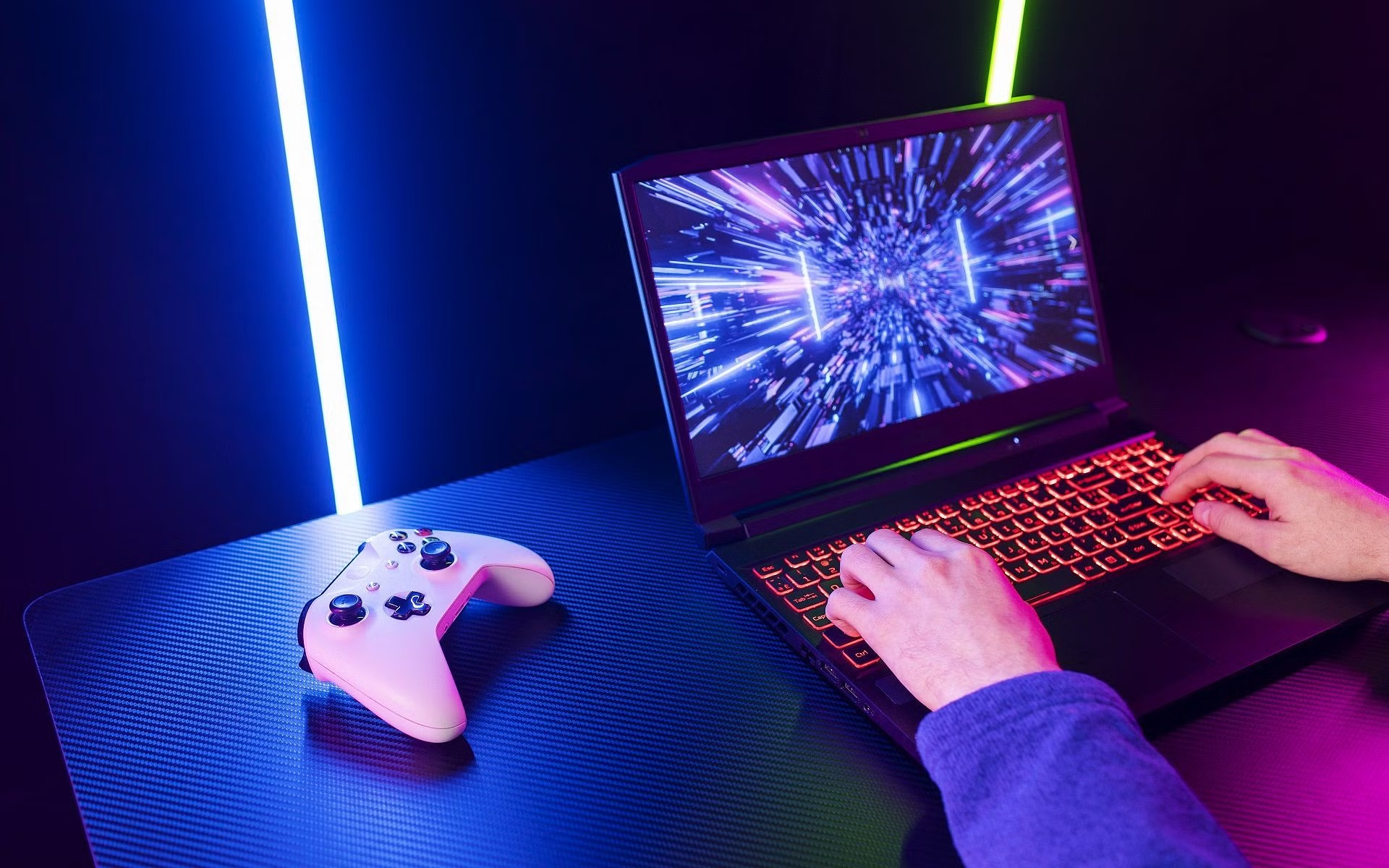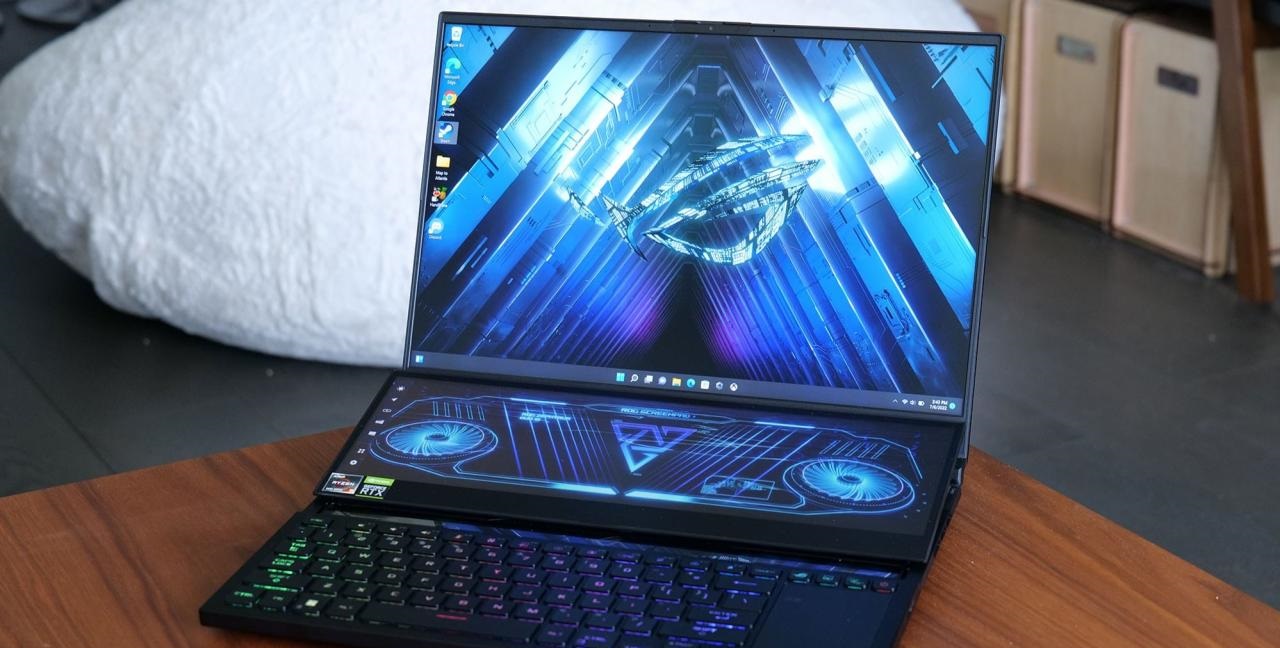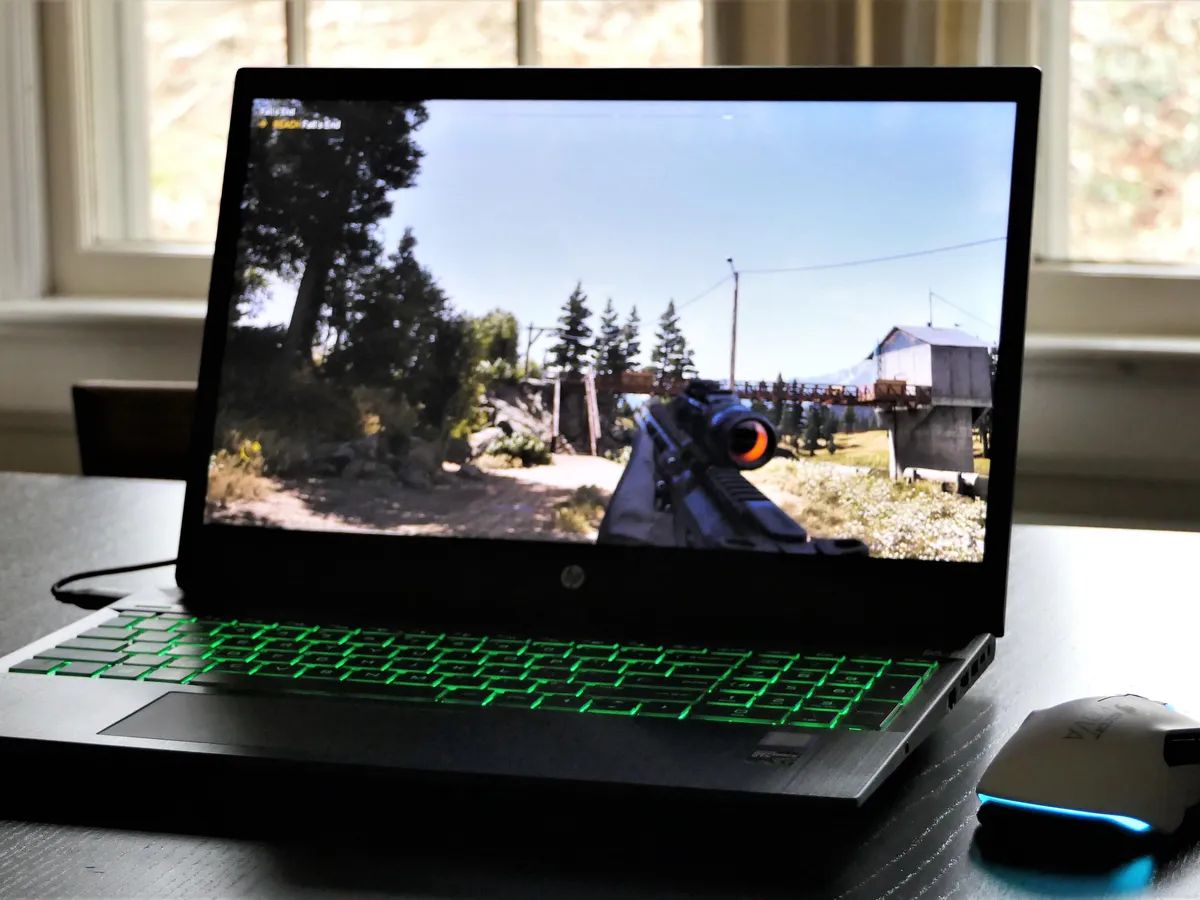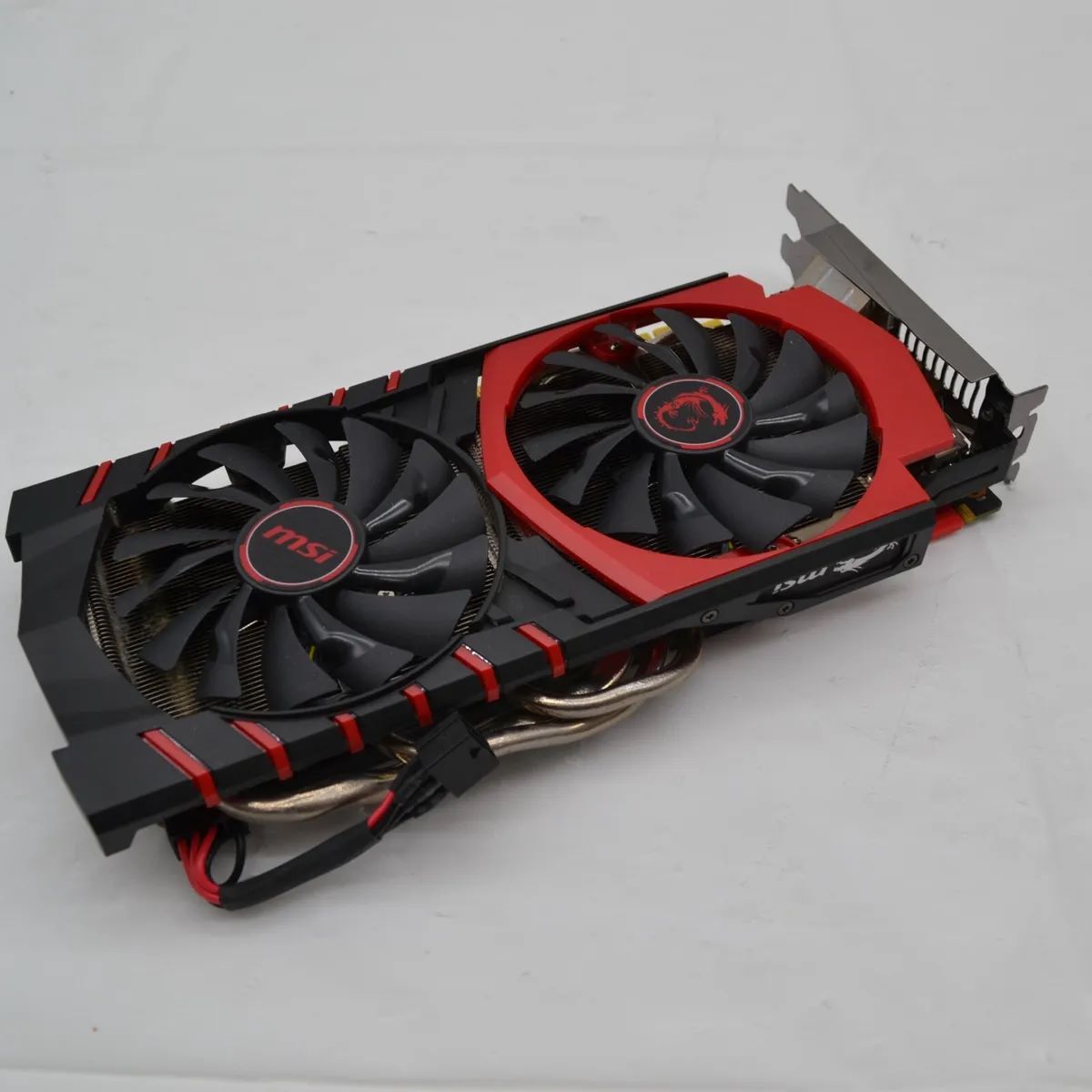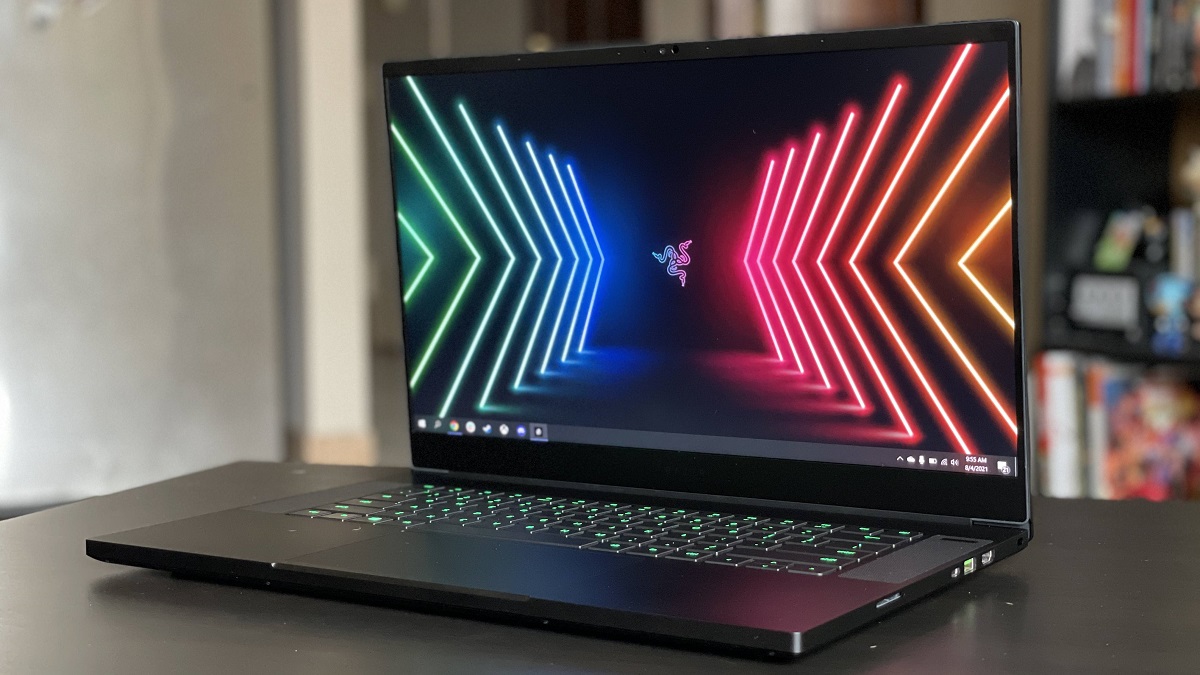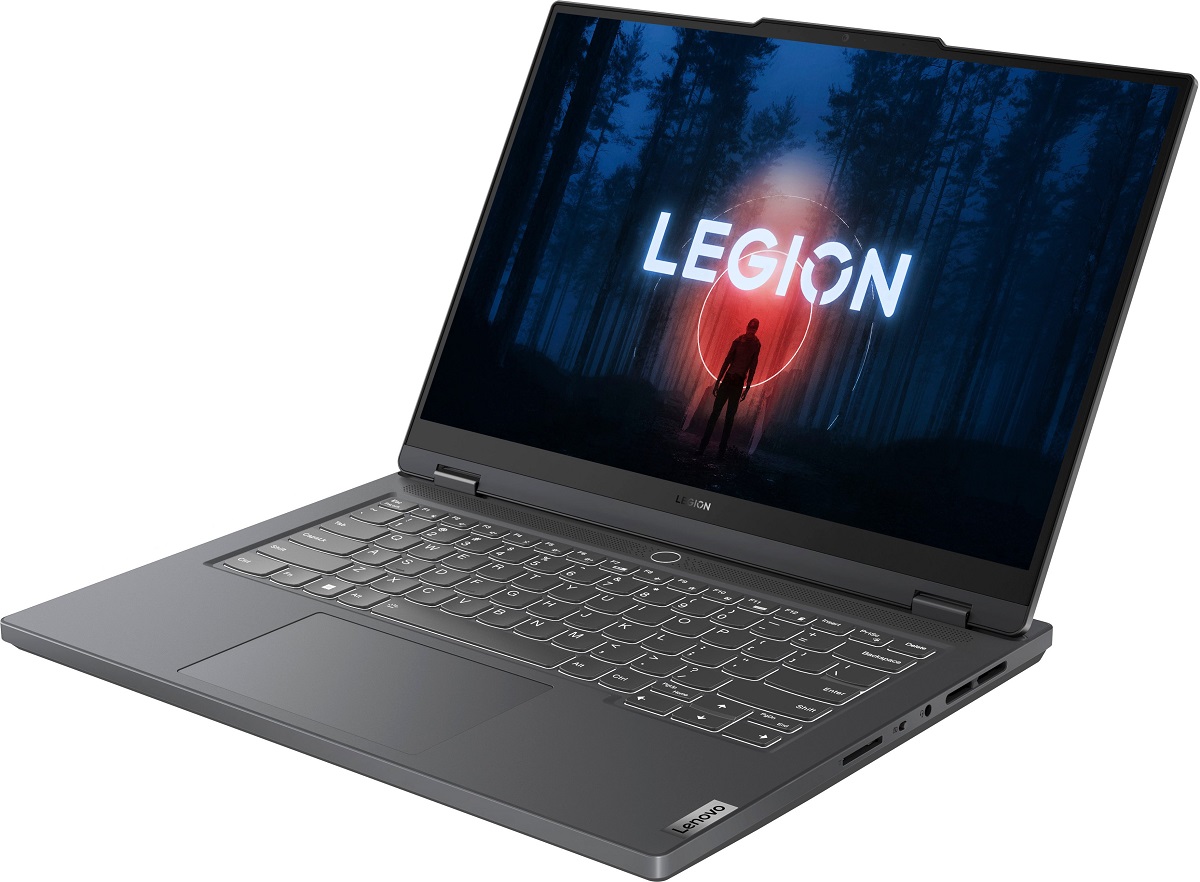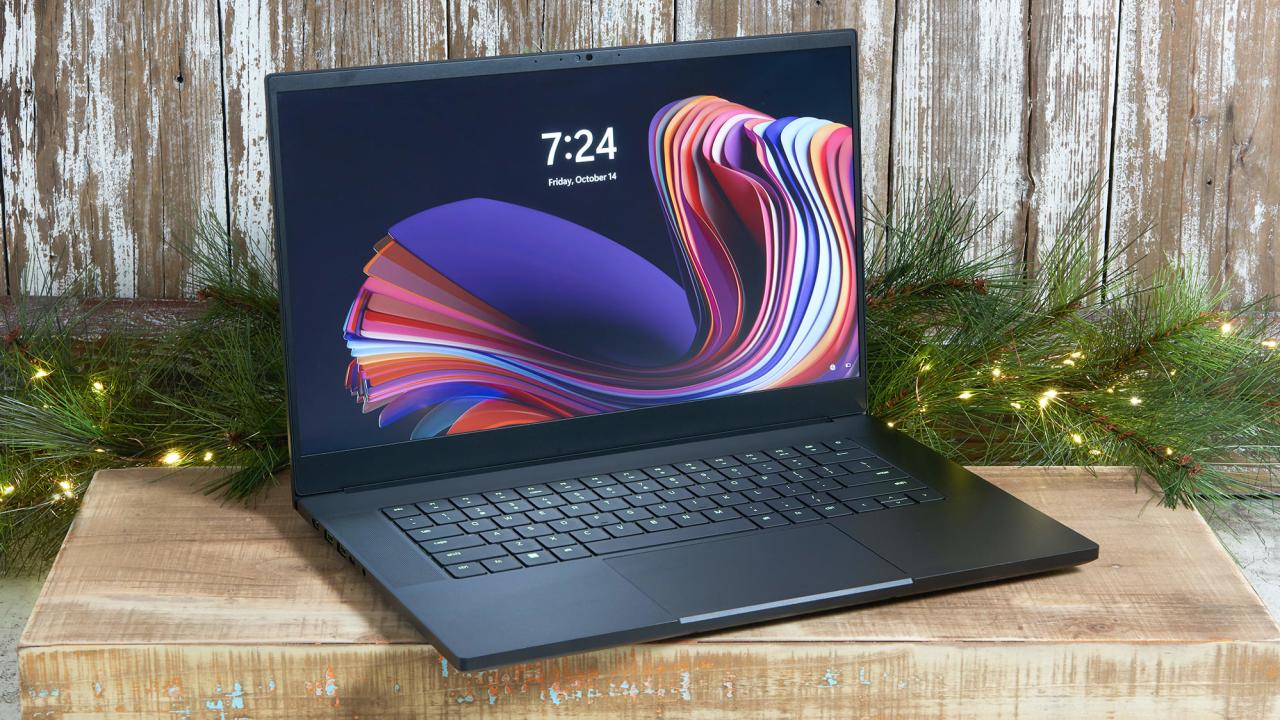Introduction
Gaming laptops have become increasingly popular in recent years, as more and more people discover the joys of immersive gaming experiences. These portable powerhouses are specially designed to handle the demanding requirements of modern video games, offering high-performance capabilities that far surpass those of a regular laptop.
What sets a gaming laptop apart from its regular counterpart is its ability to deliver smooth gameplay, stunning graphics, and fast processing speeds. In this article, we will explore the essential components of a gaming laptop, discuss the benefits and limitations of owning one, and provide tips for choosing the right gaming laptop for your needs.
So, what exactly does a gaming laptop do? Simply put, it is designed to elevate your gaming experience to new heights. Whether you’re a casual gamer or a hardcore enthusiast, a gaming laptop can provide you with the necessary hardware and features to run the latest games with ease.
With powerful processors, high-resolution displays, dedicated graphics cards, and ample storage, gaming laptops are built to handle the intense requirements of modern gaming. They are equipped with advanced cooling systems to prevent overheating during long gaming sessions and feature ergonomic keyboards and responsive touchpads to enhance your gameplay.
While gaming laptops excel in delivering an exceptional gaming experience, they are not limited to just gaming. They can handle other resource-intensive tasks like video editing, graphic design, and 3D rendering, making them a versatile choice for creative professionals and students.
In the following sections, we will take a closer look at the key components that make a gaming laptop tick, as well as the advantages and limitations of owning one. So, sit back, grab your controller, and let’s dive into the world of gaming laptops!
What is a gaming laptop?
A gaming laptop is a specialized type of laptop that is designed to deliver superior performance and graphics capabilities for gaming. Unlike regular laptops, gaming laptops are specifically optimized to handle the demanding requirements of modern video games.
One of the most notable features of a gaming laptop is its powerful hardware components. These laptops are equipped with high-performance processors, typically from brands like Intel or AMD, which ensure smooth and fast gameplay. The central processing unit (CPU) of a gaming laptop is responsible for executing game instructions and calculations, enabling the laptop to deliver optimal gaming performance.
In addition to a powerful CPU, gaming laptops also boast dedicated graphics processing units (GPUs). The GPU is responsible for rendering the complex graphics and visual effects in video games. Gaming laptops usually feature dedicated GPUs from renowned manufacturers like NVIDIA or AMD, which can handle the intense rendering tasks required by modern games.
Another important component of a gaming laptop is the random access memory (RAM). Gaming laptops typically come with larger RAM capacities to ensure seamless multitasking and smoother gameplay. The more RAM a gaming laptop has, the faster it can load and run games, allowing for a more immersive gaming experience.
Gaming laptops also offer a range of storage options to accommodate the large file sizes of modern games. Solid-state drives (SSDs) are popular choices due to their fast read and write speeds, ensuring quick game load times. Additionally, many gaming laptops include secondary storage options such as hard disk drives (HDDs) for additional storage space.
Display quality is another significant aspect of gaming laptops. These laptops come with high-resolution screens that provide stunning visuals, allowing gamers to fully appreciate the graphics and details of their favorite games. Many gaming laptops also feature high refresh rates, reducing motion blur and improving the overall gaming experience.
In the next section, we will delve deeper into the specific components of a gaming laptop and explore their importance in ensuring optimal gaming performance. So, keep reading to discover more about the exciting world of gaming laptops!
Components of a gaming laptop
A gaming laptop is an intricate machine that combines various components to deliver the high-performance capabilities required for gaming. Understanding these components is crucial in choosing the right gaming laptop for your needs and ensuring an immersive gaming experience. In this section, we will explore the key components that make up a gaming laptop:
1. Graphics processing unit (GPU): The GPU is one of the most vital components of a gaming laptop. It is responsible for rendering the visuals and graphic effects of games. A powerful GPU ensures smooth gameplay and enhances the overall visual experience. Gaming laptops often feature dedicated GPUs from reputed brands like NVIDIA or AMD, offering high graphical performance.
2. Central processing unit (CPU): The CPU is the brain of the gaming laptop, responsible for executing game instructions and calculations. A robust CPU ensures fast processing speeds, seamless multitasking, and optimal performance in demanding games. Gaming laptops generally feature high-performance CPUs from renowned manufacturers like Intel or AMD.
3. Random access memory (RAM): RAM plays a crucial role in ensuring smooth gameplay and fast loading times. The RAM stores data that the CPU can quickly access, allowing for efficient multitasking and running resource-hungry games. Gaming laptops typically have larger RAM capacities to handle the intense requirements of modern games.
4. Storage options: Gaming laptops offer various storage options to store games, applications, and files. Solid-state drives (SSDs) are popular choices due to their fast read and write speeds, resulting in quicker game load times. Additionally, gaming laptops may also feature secondary storage options like hard disk drives (HDDs) for additional storage space at a lower cost per gigabyte.
5. Display and resolution: The display quality and resolution greatly impact the visual experience of gaming. Gaming laptops often feature high-resolution screens, such as Full HD (1920×1080) or even 4K Ultra HD (3840×2160), allowing gamers to enjoy sharp and detailed visuals. High refresh rates, typically 120Hz or higher, reduce motion blur and provide a smoother gaming experience.
6. Cooling system: The intensive processing required in gaming laptops generates a significant amount of heat, which can affect performance if not properly managed. Gaming laptops employ advanced cooling systems, including heat pipes, fans, and vents, to dissipate heat and maintain optimal temperatures for prolonged gaming sessions.
Gaming laptops combine these components in a specialized design to deliver exceptional gaming performance. In the next section, we will compare gaming laptops to regular laptops, highlighting the key differences that make gaming laptops stand out. So, stay tuned!
Graphics processing unit (GPU)
The graphics processing unit (GPU) is a critical component of a gaming laptop that is solely dedicated to handling the complex computational tasks involved in rendering graphics and visual effects. A powerful GPU is essential for delivering a smooth and immersive gaming experience. Let’s explore the role of the GPU in gaming laptops in more detail:
1. Rendering graphics: The primary function of a GPU is to process and render the graphics of video games. When a game sends visual data to the GPU, it performs complex calculations to generate the 2D and 3D images that appear on the screen. A robust GPU can handle the intricate details, textures, lighting effects, and animations of modern games, resulting in fluid and visually captivating gameplay.
2. GPU architecture: Gaming laptops generally feature dedicated GPUs from renowned manufacturers like NVIDIA or AMD. These GPUs are specifically designed with gaming in mind and employ advanced architectures to enhance performance. They consist of multiple processing cores, memory cache, and specialized texture mapping units to efficiently process and render graphics in real-time.
3. Graphics memory: The GPU has its dedicated memory known as video random access memory (VRAM). This high-speed memory is essential for storing the textures, shaders, and other graphical assets used in games. More VRAM enables the GPU to handle larger and more detailed textures, resulting in improved visual quality without sacrificing performance.
4. Frame rates and smooth gameplay: The GPU plays a crucial role in determining the frame rates and overall smoothness of the gameplay. It calculates and renders each frame of the game, contributing to the frame rate displayed on the screen. A powerful GPU ensures higher frame rates, allowing for more fluid and responsive gameplay. Additionally, the GPU helps reduce stuttering, screen tearing, and lag, providing a seamless gaming experience.
5. Graphics settings: A gaming laptop with a capable GPU allows you to adjust and optimize the graphics settings of games. With a powerful GPU, you can increase the level of detail, enable higher resolutions, apply advanced visual effects like anti-aliasing and ambient occlusion, and enjoy realistic shadows and reflections.
6. External display and multi-monitor setups: Gaming laptops equipped with powerful GPUs can also support external displays and multi-monitor setups. This capability enables gamers to connect their laptops to larger monitors or dual-screen configurations, enhancing the immersion and expanding their gaming workspace.
The GPU plays a critical role in delivering stunning visuals and smooth gameplay on a gaming laptop. It works in tandem with other components, such as the CPU and RAM, to ensure optimal performance. In the next section, we will explore the importance of the central processing unit (CPU) in gaming laptops. Keep reading to learn more!
Central processing unit (CPU)
The central processing unit (CPU) is often referred to as the “brain” of a gaming laptop. It is responsible for executing instructions, performing calculations, and managing various tasks, including running video games. The CPU plays a crucial role in determining the overall performance and responsiveness of a gaming laptop. Let’s delve into the significance of the CPU in gaming laptops:
1. Processing power: The CPU’s primary function is to execute instructions and perform calculations required by software, including video games. A powerful CPU can process instructions quickly and efficiently, allowing the gaming laptop to run games smoothly and handle demanding tasks. Gaming laptops typically feature high-performance CPUs from renowned manufacturers like Intel or AMD, with multiple cores and high clock speeds.
2. Game physics and AI: The CPU contributes to the realistic physics simulations and artificial intelligence (AI) routines in video games. It handles the calculations required to simulate realistic movements, interactions, and physics-based effects within the game world. A more powerful CPU enables more accurate and complex physics simulations, enhancing the overall gaming experience.
3. Multitasking and background processes: Gaming laptops often require multitasking capabilities, especially for gamers who like to stream their gameplay, use voice chat, or run other applications alongside their games. A robust CPU can efficiently handle background processes while ensuring smooth gameplay. The ability to multitask without significant performance impact is crucial for a seamless gaming experience.
4. Cache and memory access: CPUs have a cache hierarchy that allows for faster access to frequently used data. The cache plays a vital role in minimizing memory latency and maximizing processing speed. Gaming laptops with CPUs that have larger cache sizes can benefit from quicker access to critical game data, leading to faster load times and improved overall performance.
5. Overclocking potential: Some gaming laptops offer the option to overclock the CPU, which involves increasing its clock speed beyond the manufacturer’s default settings. Overclocking can provide a performance boost, resulting in faster processing and improved game performance. However, it is important to note that overclocking generates more heat, which may require advanced cooling solutions to maintain optimal temperatures.
6. CPU and GPU synergy: The CPU and GPU in a gaming laptop work hand-in-hand to deliver optimal gaming performance. While the GPU is primarily responsible for graphics rendering, the CPU handles other game-related tasks, such as artificial intelligence, physics calculations, and game logic. A balanced combination of a powerful CPU and GPU ensures smooth gameplay, high frame rates, and overall gaming immersion.
The CPU is a crucial component that contributes to the overall performance and responsiveness of a gaming laptop. Alongside the GPU, RAM, and storage, the CPU plays a vital role in delivering an immersive and enjoyable gaming experience. In the next section, we will discuss the importance of random access memory (RAM) in gaming laptops. Stay tuned!
Random access memory (RAM)
Random access memory (RAM) is an essential component of a gaming laptop that plays a crucial role in delivering optimal performance while gaming. RAM acts as a temporary storage for data that the CPU and GPU need to access quickly. Let’s explore the importance of RAM in gaming laptops:
1. Multitasking and game performance: RAM allows a gaming laptop to handle multiple tasks simultaneously without performance degradation. When running a game, the operating system, background processes, and additional applications also require memory. Sufficient RAM capacity ensures smooth multitasking and prevents slowdowns or crashes during gameplay.
2. Faster load times: Games with extensive environments, complex levels, and detailed graphics require a significant amount of data to be loaded into memory. The more RAM a gaming laptop has, the larger amount of game data can be stored in memory, resulting in faster load times. This allows gamers to jump into the action quickly without experiencing long wait times.
3. Better game performance: RAM enables faster data transfer between the CPU and GPU, enhancing overall game performance. Games frequently need to exchange data between the CPU and GPU, such as textures, models, and shader programs. Sufficient RAM capacity ensures quick access to these assets, reducing lag and improving frame rates.
4. Seamless gameplay experience: When gaming, the CPU and GPU need to quickly access and manipulate game data in real-time. RAM provides a temporary storage space for this data, allowing for seamless and smooth gameplay. With ample RAM, games can run without slowdowns or stutters, resulting in a more immersive and enjoyable gaming experience.
5. Future-proofing: As technology advances and games become more demanding, having sufficient RAM becomes increasingly important. Games are constantly evolving with higher graphical detail, larger environments, and more complex gameplay mechanics. By investing in a gaming laptop with ample RAM, you can future-proof your system and ensure it can handle upcoming games without experiencing performance bottlenecks.
6. Upgradability: Some gaming laptops allow for RAM upgrades, providing flexibility and the ability to increase the memory capacity as needed. This allows gamers to start with a lower RAM configuration and upgrade in the future as their gaming requirements grow. Upgrading RAM can be a relatively straightforward process that can significantly improve gaming performance.
In summary, RAM plays a vital role in ensuring smooth performance, faster load times, and a seamless gaming experience on a gaming laptop. It enables effective multitasking, provides quick data access for the CPU and GPU, and future-proofs your system. To unleash the full potential of your gaming laptop, consider investing in a model with ample RAM capacity. In the next section, we will explore the different storage options available in gaming laptops. Stay tuned!
Storage options
Storage is a crucial aspect of a gaming laptop, as it determines how much data can be stored and accessed quickly. Gaming laptops offer various storage options to accommodate the large file sizes of modern games. Let’s explore the different storage options commonly found in gaming laptops:
1. Solid-state drives (SSDs): SSDs have revolutionized storage in gaming laptops due to their exceptional speed and performance. These drives use flash memory to store data, resulting in faster boot times, quick game load times, and snappy system responsiveness. SSDs are highly recommended for gamers as they significantly enhance the overall gaming experience.
2. Hard disk drives (HDDs): HDDs are the traditional storage option found in many gaming laptops. They use spinning platters and read/write heads to store and access data. While HDDs generally offer larger storage capacities at a more affordable price, they are slower compared to SSDs. HDDs are suitable for storing large game libraries and media files that do not require high-speed access.
3. Hybrid drives: Hybrid drives combine the best of both SSDs and HDDs. They feature a smaller portion of SSD storage for frequently accessed files, allowing for faster load times, while the remaining storage is in the form of an HDD for larger file storage. Hybrid drives provide a balance between speed and capacity, offering a cost-effective solution for gaming laptops.
4. External storage options: Gaming laptops often come with additional ports like USB or Thunderbolt, enabling gamers to use external storage options. External hard drives or SSDs provide extra storage space that can be used to store game backups, media libraries, or additional game installations. They offer the advantage of portability and flexibility, allowing gamers to expand their storage capacity when needed.
5. Upgradability: Some gaming laptops allow for storage upgrades, providing the option to increase storage capacity or replace the existing drive with a faster one. This flexibility is especially useful for gamers with large game libraries or those who require more storage for multimedia content. Check the specifications and compatibility of the gaming laptop before considering storage upgrades.
6. Considerations: When choosing the storage option for a gaming laptop, consider your specific needs. If you prioritize speed and performance, opt for an SSD. If you require more storage space at a reasonable cost, an HDD or hybrid drive may be suitable. Assess your gaming library size, the need for portability, and your budget to make an informed decision.
Having adequate storage is crucial for storing games, game saves, and other media files on your gaming laptop. The choice of storage option will depend on your priorities regarding speed, capacity, and budget. In the next section, we will discuss the importance of the display and resolution in a gaming laptop. Keep reading to learn more!
Display and resolution
The display of a gaming laptop plays a crucial role in providing an immersive and visually stunning gaming experience. The display quality, along with the resolution, greatly impacts how games are portrayed and enjoyed. Let’s delve into the importance of display and resolution in gaming laptops:
1. Display quality: Gaming laptops often feature high-quality displays that provide vibrant colors, sharp details, and wide viewing angles. Quality displays enhance the visual experience, allowing gamers to fully immerse themselves in the game world. Features such as high contrast ratios, accurate color reproduction, and anti-glare coatings contribute to a more enjoyable gaming experience.
2. Resolution: The resolution of a gaming laptop refers to the number of pixels displayed on the screen. Higher resolutions offer more detailed and sharper visuals, providing a more realistic and immersive gaming experience. Common resolutions found in gaming laptops include Full HD (1920×1080 pixels), Quad HD (2560×1440 pixels), and 4K Ultra HD (3840×2160 pixels). Higher resolutions require more powerful hardware to render games at native resolution without sacrificing performance.
3. Display size: Gaming laptops come in various sizes, typically ranging from 13 to 17 inches. The size of the display impacts the overall portability and the gaming experience. Larger displays provide more screen real estate, enhancing the visual immersion and allowing for a more detailed gameplay experience. However, larger displays may also add weight to the laptop and make it less portable.
4. High refresh rates: High refresh rates define how many times the display can refresh the image per second. Gaming laptops often feature high refresh rates of 120Hz, 144Hz, or even 240Hz. Higher refresh rates result in smoother animations, reduced motion blur, and improved responsiveness, allowing gamers to react quickly during fast-paced gameplay. High refresh rates are especially important for competitive gaming, where every millisecond counts.
5. G-Sync and FreeSync technologies: Some gaming laptops support technologies like G-Sync (NVIDIA) or FreeSync (AMD) that synchronize the display’s refresh rate with the GPU’s output. This synchronization eliminates screen tearing and stuttering, ensuring a tear-free and smooth gaming experience. These technologies enhance visual fluidity and provide a more enjoyable gameplay experience.
6. External display options: Gaming laptops often support external display connections, allowing gamers to connect their laptops to larger screens with higher resolutions. This expands the gaming experience, providing a larger field of view and more immersive visuals. External displays can be particularly useful for gaming setups at home or for connecting to gaming monitors with specific features like higher refresh rates or HDR support.
The display quality and resolution of a gaming laptop greatly impact the visual experience and overall immersion while gaming. Higher resolutions, coupled with quality displays and high refresh rates, can make games come to life. When choosing a gaming laptop, consider your preferences for display size, resolution, and additional features to ensure an optimal gaming experience. In the next section, we will explore the importance of the cooling system in a gaming laptop. Keep reading to learn more!
Cooling system
The cooling system is a crucial component in a gaming laptop as it helps maintain optimal temperatures during intense gaming sessions. The cooling system ensures that the internal components, such as the CPU and GPU, operate within safe temperature ranges, preventing overheating and performance throttling. Let’s delve into the importance of the cooling system in a gaming laptop:
1. Prevents overheating: Gaming laptops generate a significant amount of heat due to the intensive processing required to run modern games. The cooling system, consisting of heat pipes, fans, and heat sinks, actively dissipates this heat to prevent overheating. It ensures that the internal components stay at safe operating temperatures, optimizing performance and longevity.
2. Enhances performance: Heat can negatively impact a gaming laptop’s performance. When components overheat, they can throttle down to lower clock speeds to reduce heat generation, resulting in decreased performance. An efficient cooling system helps keep the temperatures in check, allowing the CPU and GPU to operate at their full potential, maximizing gaming performance.
3. Reduces noise: Gaming laptops with inadequate cooling systems can become noisy as the fans run at higher speeds to dissipate heat. An efficiently designed cooling system ensures effective heat dissipation without excessive fan noise. This allows for a quieter gaming experience, minimizing distractions and enhancing immersion during gameplay.
4. Advanced cooling technologies: Some gaming laptops feature advanced cooling technologies, such as vapor chambers or liquid metal thermal compounds, which provide enhanced heat dissipation. These technologies offer improved thermal conductivity and distribution, resulting in lower temperatures and better performance. In addition, gaming laptops may include software that allows users to customize fan speeds or performance profiles to fine-tune cooling efficiency.
5. Extended lifespan: Excessive heat can potentially shorten the lifespan of internal components in a gaming laptop. By effectively cooling the system, the risk of long-term damage caused by heat is reduced, thereby extending the overall lifespan of the laptop. A well-maintained cooling system ensures that the gaming laptop remains reliable and functional for a longer period.
6. Proper maintenance: It’s important to maintain the cooling system of a gaming laptop to ensure its optimal performance. Regular cleaning of the vents and fans helps remove dust and debris that can hinder airflow. Applying new thermal paste to the CPU and GPU after a few years can also help improve heat transfer. Following the manufacturer’s guidelines for cleaning and maintenance can help keep the cooling system operating efficiently.
The cooling system is a vital component in a gaming laptop as it plays a critical role in maintaining performance, preventing overheating, and ensuring the longevity of the internal components. When choosing a gaming laptop, consider the quality and efficiency of the cooling system to ensure a reliable and stable gaming experience. In the next section, we will compare gaming laptops to regular laptops. Stay tuned!
Gaming laptop vs. regular laptop
When it comes to choosing a laptop, there are significant differences between a gaming laptop and a regular laptop. Each serves a specific purpose and is designed to cater to different needs. Let’s explore the distinctions between gaming laptops and regular laptops:
1. Performance: Gaming laptops are built with powerful hardware components to handle the demanding requirements of modern games. They have robust processors, dedicated graphics cards, ample RAM, and fast storage options. Regular laptops, on the other hand, are designed for everyday tasks such as web browsing, productivity applications, and multimedia consumption. They generally have lower performance specifications compared to gaming laptops.
2. Graphics capabilities: Gaming laptops excel in delivering high-quality graphics and visual effects. They feature dedicated graphics cards with powerful GPUs specifically optimized for gaming. Regular laptops often rely on integrated graphics that are not as powerful as dedicated gaming GPUs. This difference in graphics capabilities means that gaming laptops can run graphically intensive games smoothly and at higher resolutions, while regular laptops may struggle to achieve the same level of performance.
3. Display quality: Gaming laptops typically have high-resolution displays with high refresh rates, providing stunning visuals and smooth gameplay. They prioritize features like color accuracy, wide viewing angles, and anti-glare coatings. Regular laptops, however, are geared towards general multimedia consumption and may not offer the same level of display quality as gaming laptops.
4. Cooling system: Gaming laptops incorporate advanced cooling systems to prevent overheating during extended gaming sessions. These systems consist of heat pipes, fans, and heat sinks designed to efficiently dissipate heat. Regular laptops, while they may have cooling mechanisms, are not typically designed to handle the same level of heat generated during intense gaming. As a result, gaming laptops generally have better heat management capabilities.
5. Portability: Regular laptops are usually more portable and lightweight than gaming laptops. They are designed for easy transportation and are suitable for people constantly on the move. Gaming laptops, on the other hand, are often bulkier and heavier due to the additional hardware components and cooling systems that require more space. However, advancements in technology have led to more lightweight and portable gaming laptop options in recent years.
6. Price: Gaming laptops tend to be more expensive than regular laptops due to the high-performance components they contain. The dedicated graphics card, powerful processor, and other gaming-specific features contribute to a higher price point. Regular laptops, being designed for everyday use and less demanding tasks, are generally more budget-friendly.
It’s important to choose the right laptop that aligns with your specific needs. If you are primarily interested in gaming and require high-performance and immersive gameplay, a gaming laptop is the ideal choice. However, if you need a laptop for general use like web browsing, work, or multimedia consumption, a regular laptop will suffice at a more affordable price point. Consider your priorities, budget, and usage requirements when making your decision.
In the next section, we will discuss the benefits and limitations of owning a gaming laptop. Stay tuned!
Benefits of a gaming laptop
Owning a gaming laptop offers several benefits that make it a worthwhile investment for gaming enthusiasts. Gaming laptops are specifically designed to deliver exceptional gaming performance and provide a superior gaming experience. Let’s explore the key benefits of owning a gaming laptop:
1. High-performance capabilities: Gaming laptops are equipped with powerful hardware components, including processors, dedicated graphics cards, and ample RAM. This high-performance hardware allows for smooth gameplay, fast loading times, and the ability to run demanding games without compromising performance.
2. Immersive gaming experience: Gaming laptops provide an immersive gaming experience with their high-resolution displays, sharp visuals, and realistic graphics. The combination of powerful hardware and high-quality displays allows for a visually captivating and engaging gameplay experience.
3. Portability: While gaming desktops offer unrivaled performance, gaming laptops provide the advantage of portability. Gaming laptops allow you to take your gaming setup on-the-go, whether you’re traveling, visiting friends, or participating in LAN parties. This flexibility enables you to enjoy gaming wherever and whenever you want without being tied to a stationary setup.
4. Versatility: Gaming laptops are not solely restricted to gaming. With their powerful hardware, they can handle resource-intensive tasks such as video editing, graphic design, and 3D rendering. This versatility makes them suitable for creative professionals and students who require a robust system for their work.
5. Multi-tasking capabilities: Gaming laptops are equipped with ample RAM and powerful processors, enabling seamless multitasking. You can have the game running while streaming, using voice chat, browsing the web, or running other applications simultaneously, without significant performance impact.
6. Upgradability: Many gaming laptops offer the option to upgrade certain components such as RAM or storage, allowing you to adapt your laptop to future requirements. This upgradability ensures that your gaming laptop can continue to perform at its best even as newer technologies and games emerge.
7. Competitive gaming performance: Gaming laptops with high refresh rates, fast response times, and powerful components are well-suited for competitive gaming. These features allow for swift reactions, smooth performance, and reduced input lag, giving gamers a competitive edge in multiplayer games.
8. Access to gaming on-the-go: Owning a gaming laptop means you have access to gaming whenever you want, without being confined to a specific location. Whether you’re on a business trip, vacation, or at a friend’s house, you can still enjoy your favorite games without the need for a dedicated gaming setup.
These benefits make gaming laptops a popular choice for gamers who prioritize performance, immersion, and portability. The ability to game anytime, anywhere, combined with the power and versatility of a gaming laptop, creates a compelling gaming experience. In the next section, we will discuss the limitations of owning a gaming laptop. Keep reading!
Limitations of a gaming laptop
While gaming laptops offer many advantages, it’s important to consider the limitations they come with. Understanding these limitations can help you make an informed decision when choosing a gaming laptop. Let’s explore the key limitations of owning a gaming laptop:
1. Price: Gaming laptops tend to be more expensive compared to regular laptops. The high-performance components, advanced cooling systems, and specialized features of gaming laptops contribute to their higher price tag. If you’re on a tight budget, a gaming laptop may not be the most cost-effective option.
2. Upgradability: While some gaming laptops offer limited upgradability options, they are generally less flexible compared to gaming desktops. Upgrading certain components in a laptop, such as the graphics card or CPU, can be challenging or even impossible due to the specific hardware requirements and form factor of the laptop. It’s important to carefully consider your future needs before purchasing a gaming laptop.
3. Limited battery life: Gaming laptops are power-hungry devices due to their high-performance components and the demanding nature of games. This means that gaming laptops tend to have shorter battery life compared to regular laptops. When running graphics-intensive games, the battery can drain quickly, requiring you to have access to a power source for extended gaming sessions.
4. Portability and weight: While gaming laptops are more portable compared to gaming desktops, they are still bulkier and heavier than regular laptops. The additional hardware components and cooling systems contribute to the increased weight and larger form factor of gaming laptops. This can make them less convenient for everyday carrying, especially if you frequently travel or have mobility requirements.
5. Heat and noise: Gaming laptops generate a significant amount of heat during intensive gaming sessions, which can cause the internal components to reach high temperatures. While gaming laptops have advanced cooling systems, they may still produce a considerable amount of fan noise to dissipate the heat. This can be a concern if you prefer a quieter gaming environment.
6. Display limitations: Gaming laptops, although equipped with high-resolution displays, may have limitations such as smaller screen sizes than desktop monitors. Additionally, some gaming laptops may not support advanced display technologies like HDR (High Dynamic Range) or wide color gamut coverage. It’s important to carefully check the specifications and features of the laptop’s display if these aspects are essential to your gaming experience.
7. Hardware limitations over time: While gaming laptops offer excellent performance at the time of purchase, they may face hardware limitations over time. As new games with higher requirements and more advanced graphics emerge, the laptop’s hardware may struggle to keep up. This can result in decreased performance or the need to lower game settings to maintain smooth gameplay.
Understanding and considering these limitations will help you make a well-informed decision when choosing a gaming laptop. It’s essential to weigh the benefits against the limitations, assess your specific gaming needs, and determine whether a gaming laptop is the right fit for you. In the next section, we will provide some tips for choosing the right gaming laptop. Keep reading!
Choosing the right gaming laptop
Choosing the right gaming laptop can be an exciting but challenging task, given the wide range of options available in the market. To ensure you select a gaming laptop that meets your needs and provides an exceptional gaming experience, consider the following factors:
1. Performance: Look for a gaming laptop with a powerful CPU, dedicated graphics card, and ample RAM. These components are crucial for delivering smooth gameplay and optimal performance in modern games. Assess the specifications of the laptop and ensure they meet the requirements of the games you want to play.
2. Display: Consider the display size, resolution, and refresh rate. A larger display allows for a more immersive gaming experience, while a high-resolution display with a higher refresh rate can enhance visuals and reduce motion blur. Choose a gaming laptop with a display that suits your preferences and fits your gaming needs.
3. Cooling system: Look for a gaming laptop with an efficient cooling system that can effectively dissipate heat during extended gaming sessions. An advanced cooling system helps prevent overheating and ensures optimal performance. Consider laptops with additional features like heat pipes, multiple fans, or improved airflow for better heat management.
4. Portability: Consider the portability of the gaming laptop based on your needs. If you plan to travel frequently or use the laptop in different locations, look for lighter and more compact options. Keep in mind that the more powerful and bulky the components, the less portable the gaming laptop will be.
5. Battery life: If you often game on the go, consider a gaming laptop with a decent battery life. While gaming laptops typically have shorter battery life due to their demanding hardware, opting for a laptop with better battery optimization can be beneficial when you don’t have access to a power source.
6. Storage: Consider the storage options available in the gaming laptop. Opt for a model with sufficient storage space to accommodate your game library, additional files, and multimedia content. SSDs offer faster load times, while HDDs provide larger storage capacities at a more affordable price. Hybrid drives can offer a balance between the two.
7. Budget: Determine your budget range and look for gaming laptops that fall within that range. Gaming laptops can vary significantly in price, so it’s essential to strike a balance between your desired specifications and your budget. Consider what features are most important to you and allocate your budget accordingly.
8. Reviews and recommendations: Read reviews and seek recommendations from trusted sources to gain insights into the performance and reliability of different gaming laptop models. Other gamers’ experiences can help you make a more informed decision and identify any potential issues or limitations that may not be immediately apparent.
Taking the time to research and consider these factors will help you choose a gaming laptop that matches your gaming preferences, budget, and requirements. Remember to prioritize the features that matter most to you and seek a balance between performance, portability, and affordability. With the right gaming laptop by your side, you’ll be ready to dive into the exciting world of gaming.
Conclusion
Gaming laptops have transformed the gaming landscape, providing gamers with portable powerhouses that deliver exceptional gaming performance and immersive experiences. These laptops are designed with high-performance hardware, dedicated graphics cards, and advanced cooling systems to handle the demanding requirements of modern games.
Throughout this article, we’ve explored the various components and features that make gaming laptops a preferred choice for gamers. From powerful GPUs and CPUs to ample RAM and high-resolution displays, gaming laptops are tailored to deliver smooth gameplay and stunning visuals.
While gaming laptops offer significant benefits such as high-performance capabilities, portability, and versatility, they do come with certain limitations. Factors like higher price tags, limited upgradability, and shorter battery life should be considered when making a purchasing decision.
When choosing a gaming laptop, it’s important to consider factors like performance, display quality, cooling systems, portability, storage options, and budget. Conducting thorough research, reading reviews, and seeking recommendations from trusted sources will help you make an informed decision that aligns with your gaming needs and preferences.
Ultimately, the right gaming laptop will provide you with a platform to enjoy a wide range of games, immerse yourself in breathtaking visuals, and compete against players worldwide. Whether you’re a casual gamer, a competitive enthusiast, or a creative professional, a gaming laptop is a valuable investment that opens up a world of opportunities.
So, take your time, evaluate your requirements, and choose a gaming laptop that best suits your needs. With the right choice, you’ll embark on an exciting gaming journey filled with endless possibilities and countless thrilling adventures.









